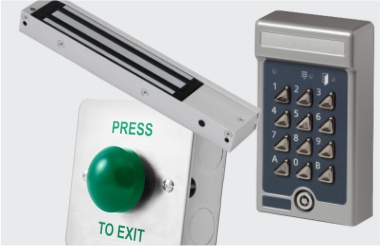Access control for remote work - managing access in a distributed workforce

Even before the COVID-19 pandemic it was clear that workplace routines have been evolving for a long time. Although people were forced to work from home during the pandemic and have developed flexible work routines that suit them thereafter, traditional hours of work and conventional work routines have been becoming increasingly obsolete for many years. Of course some jobs, such as field service engineers, delivery drivers or salesmen have always lent themselves to remote working, but increasingly employers are recognising that people like the freedom to work where they want, this doesn’t impact on productivity and in most cases improves it, and are prepared to be flexible in enabling this.
However, the issue of security is never far away, and the business still has a duty to look after the safety and wellbeing of remote workers. In most cases this just means knowing where they are and providing the right tools to make their workstations safe and comfortable, but in some cases employees still require the option to visit headquarters or base offices, and so access control is still important.
The benefits of access control for remote workers
There are many different types of remote workers. Some people work exclusively on the road, but require the ability to visit the office periodically, while some people work away from the office but need to visit the office at the beginning and end of every day. Some people have no set routine and like to be flexible in how they come and go from the office, while others work maybe one or two days in the office and the rest of the week elsewhere. The key is that whatever work routine employees have, they have access to the office when they need it, and the business needs a robust access control system for security and HR purposes.
An effective access control system will therefore encourage remote workers to visit the office as and when they need to, with the confidence that they can gain entry. And at the same time this will generate a certain level of trust in the employee and with the employer, which in turn builds loyalty, morale and productivity.
Considerations when designing an access control system for remote workers
So what do you need to think about when designing an access control system for remote workers? Essentially, any system you implement has to strike a balance between convenience and effective security for it to be successful. The remote employee merely sees it as a means of gaining entry on such occasions that they need to, while the business needs a robust security system which controls authorised personnel on site, not forgetting that there are also likely to be core workers on site who work exclusively in the office.
Consistency – The access control system needs to be consistent in how it identifies users and grants them access based on their authorisation status. So how do you plan to distribute the appropriate permissions? Do all employees have the same authorisation status or do you issue this differently between permanent on-site employees and remote workers?
Access – When gaining access to a building, businesses have a choice of options to use, such as cards, fobs, keypads with PINs and unique codes and biometric features. What is the best way for employees to gain access and do you have different systems for different users?
Central monitoring – It is a good idea to have a central management hub for the access control system so that remote workers can be monitored and the system can be screened for its effectiveness.
Audits – You should routinely audit the system to ensure remote workers are accessing the building as and when they should be. Most access control systems with a modern level of sophistication will enable you with this functionality.
Training – You should implement robust policies for remote working and train employees in them, so that all employees are aware of the expectations on them, even if this is entirely flexible.
Safety – Any access control system you implement should consider the safety of employees using it, bearing in mind some remote workers may be accessing the building out of hours, ie. late at night or early morning.
Data protection – The business has strict responsibilities in terms of data protection and privacy, so access control systems have to have safeguards in place to manage this.
A considerable benefit to the business in installing an access control system for remote workers, is that it often opens up the business to become a 24/7 operation. If a robust and effective system is implemented, which is effectively automatic and unmanned, it means employees can come and go as needed and the hours of business are far more flexible and open-ended. As long as this works for the business and appropriate controls, policies and procedures are in place, this can transform productivity and generate a positive and progressive culture.
So, implementing an access control system for remote workers is a great opportunity to evolve a business and think about growth and ambition, because it also has to work alongside the core business operations. If your business has remote workers and you need a security and entry system to benefit your organisation, then check out our range of access control systems and order online today.